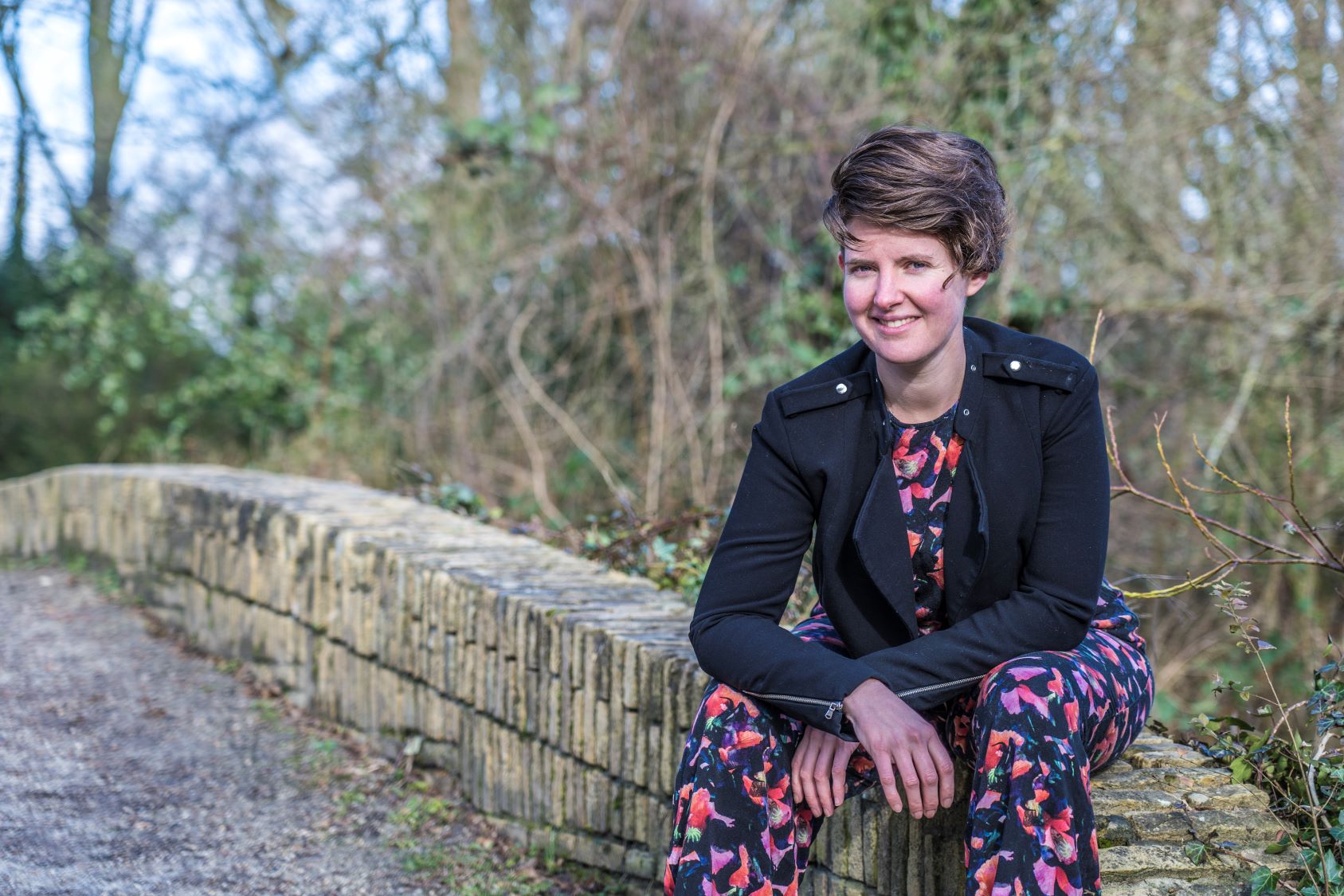Student accommodation and the growth of TU Delft are returning themes in the election manifestos of Delft’s political parties. A series of interviews with party candidates.
Rinske Wessels: "The campus can really become a part of the city.” (Photo: Fred Leeflang)
GroenLinks (green left) party candidate Rinske Wessels got involved in politics five years ago when she saw that more and more people in Delft did not feel seen or heard. “That was my trigger. I did not think that I had the solution, but I did want to see if I could get politics moving from the inside.” After a brief internet search she found the ‘yes I want to be in the municipal council’ course run by the Municipality of Delft and shortly afterwards she was the highest placed newcomer in the electoral list at number four. In the run-up to the current elections, she even made it to party candidate. “It has been a whirlwind, entering politics.”
You have ideas for all sorts of types of housing. What would you do about the shortage of student rooms?
“We do not only want student accommodation in Delft – such as in Schieoevers – but in the surrounding municipalities too. And we need to think about the campus differently. We want housing to be built there for students with communal spaces as well as for other groups such as first-time job seekers. If you also build other amenities such as cafés and restaurants, you will create a lively area. In time, say over 10 years or so, the campus will really become a part of the city.”
The land belongs to TU Delft, so they would need to cooperate. How will you convince TU Delft to build more than the current houses and possibly even temporary housing?
“TU Delft is currently very protective of the campus. You constantly hear that all those hectares are reserved for education or companies. And this while Delft itself has no more empty fields. So a hard discussion with TU Delft is needed. We are already in discussion, but it needs to be continued.”
‘So if there are no good solutions, you may have to turn off the tap’
Many of the election programmes centre around the growth of TU Delft. How do you envision the future of TU Delft?
“We certainly stand for education, but TU Delft must talk about the question whether a liveable environment would be created if all the people that it attracts live together. TU Delft continues to accept new students, while the housing problem is not being addressed. So if there are no good solutions, you may have to turn off the tap. This is extremely complicated as universities are funded by the number of students that graduate, and if you want to change this, you would have to change the national policy. I would start by entering into a discussion with TU Delft and say that we are reaching the limit, if we have not already reached it.”
Tell us one thing that you managed to do for students or young people last year.
“My party members have looked into the issues around the GGZ (Dutch Association of Mental Health and Addiction Care) to make it more accessible. Partly because of this, the TU Delft student psychologists have closer contact with the GGZ and access to this type of mental health care has become easier to access.”
If you had a big pot of money, what would you spend it on?
“On tackling poverty. If people are unable to provide for themselves, you will not reach them in a societal context either. The level of income assistance is low. We have working poor people, the energy prices are skyrocketing, and inflation is rising and rising so the problem will only get bigger. I was recently at the Food Bank in Delft for a project and afterwards I thought how bizarre it is that a wealthy country like the Netherlands – a country with so many options – needs food banks.”
-
For this interview series, the editors of Delta approached all participating Delft political parties by email, sms, phone, Instagram, LinkedIn and Facebook. Despite repeated contact attempts, we did not succeed in scheduling interviews with Bij1Delft, Onafhankelijk Delft and Volt. Read the election programmes of all participating political parties in Delft via this link (in Dutch).
Do you have a question or comment about this article?
a.m.debruijn@tudelft.nl


Comments are closed.